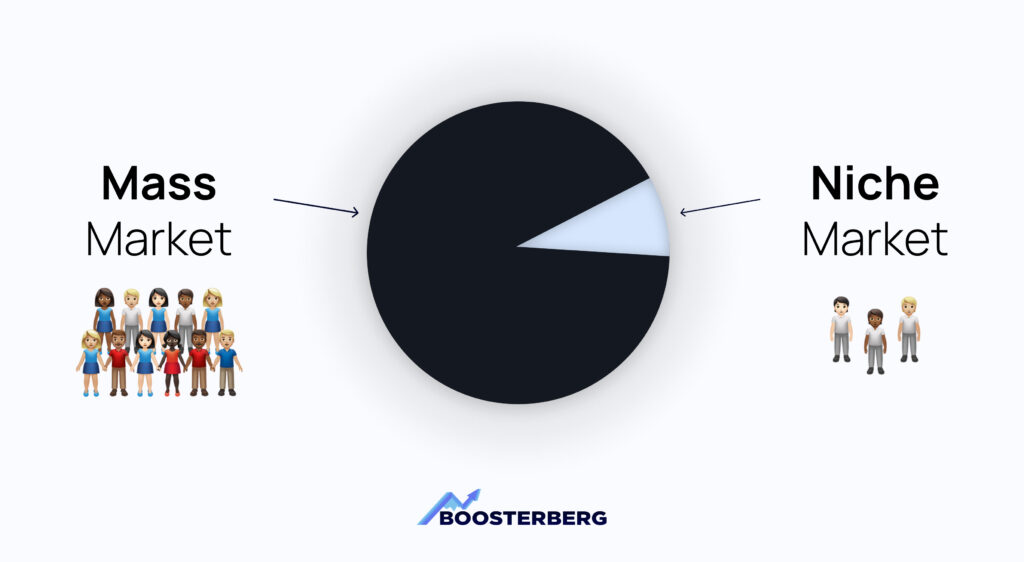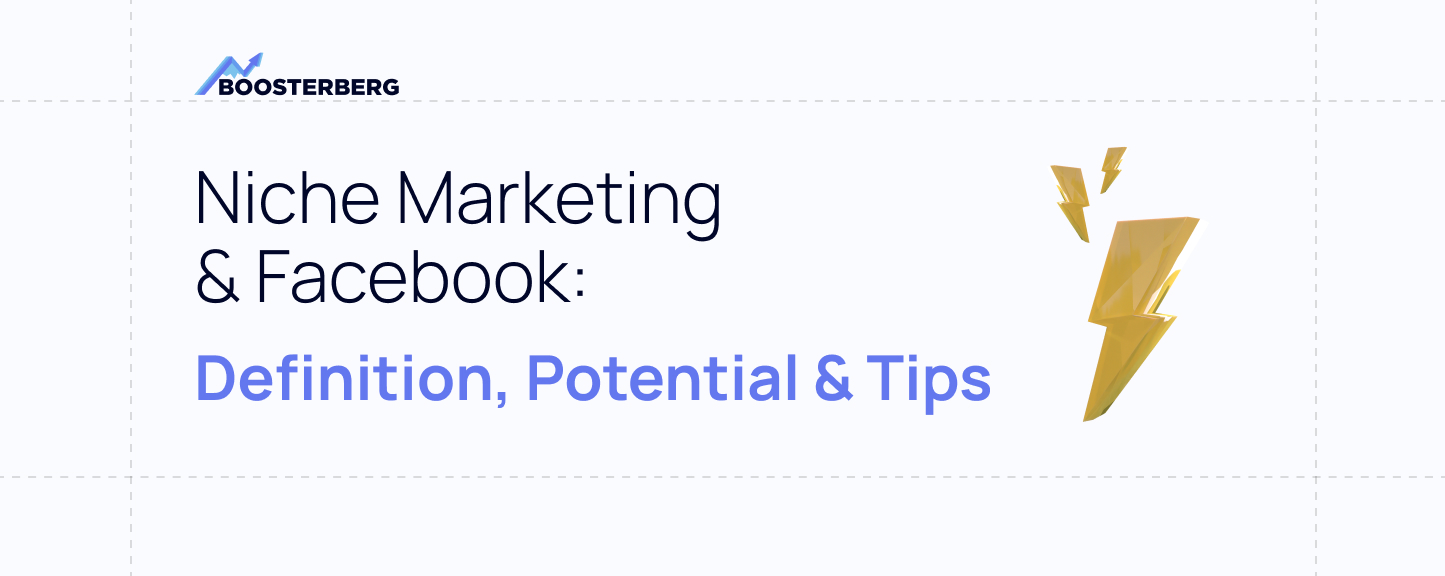Updated on April 26th, 2023 by Sanela C. Kurtek
Does your brand service a very particular and limited audience? Are you struggling to differentiate yourself from the larger players on social media?
If yes, that means your brand is in what is called a niche market.
Niche marketing definition
A niche market is a small, specialized segment of a larger market with unique needs, preferences, and behaviors. It can be based on factors such as age, gender, location, interests, or values. That means a niche market is a smaller, better-defined part of a larger market.
Let’s have a look at some marketing niche examples to make sure we understand the term better.
The Rare Plants Shop
The houseplant market has exploded in popularity in recent years, with more and more people adding greenery to their homes. Moreover, during the COVID-19 pandemic, people spent more time indoors, looking for ways to enhance their living spaces. Due to this, the demand for houseplants skyrocketed, creating a lucrative market for businesses that cater to plant enthusiasts.
Houseplant markets are divided into smaller niche markets catering to specific plant families or rare and exotic plants. With worldwide shipping and the internet, people discovered plants they had never heard of before but really wanted, so rare plant sellers popped up to meet the demand.

The Rare Plants Shop, owned by Kaylee Ellen, is one of those businesses.
- Her brand caters to plant enthusiasts who seek out rare and exotic plants that aren’t available in traditional garden centers.
- She built a loyal following of customers who share her passion for unique and hard-to-find plants.
- She has a large following on YouTube, where she posts videos about plants she collects and how to take care of them.
- Her online shop only sells a small variety of plants and cuttings, and she is often the first shop in Europe to offer new-to-the-market plants.
That is the definition of niche marketing.
“Build something 100 people love, not something 1 million people kind of like.” – Brian Chesky
How to find your niche audience
Nowadays, niche marketing is much easier than it was before when finding new customers outside of loyal customers was difficult without referrals. In the same way that Kaylee Ellen uses YouTube to reach her audience, you can find niche audiences tend to group on different platforms such as Instagram, Reddit, Facebook or even Discord.
To find your niche audience, you can start by researching your industry and identifying areas where there is an unmet need.
After all, niche marketing is about catering to the unique needs that the mainstream market isn’t addressing.

Look for gaps in the market that your product or service could fill. Once you have identified a potential niche, conduct further research to understand the target audience’s specific needs and preferences and what questions they need answering.
Niche marketing advantages and disadvantages
Let’s explore the pros and cons of niche marketing.
Pros:
- Gets your brand in front of the RIGHT audience
By turning to niche marketing, you’re focusing only on relevant customers, increasing your chances of turning potential customers into paying customers.
- Which in turn makes you spend less on advertising
Focusing on your niche allows you to target a specific audience, which means you’ll save money trying to reach a wider audience with your ads.
- Builds brand loyalty
By catering to a specific niche, you can create a loyal customer base that identifies with your brand, which can result in repeat business and referrals.
- Less competition
Most businesses will opt for the wide market, which means niche markets tend to have less competition.
Cons:
- Limited audience and growth opportunities
If you’re ok with reaching a smaller but more relevant group of people, this might not be an issue for you. But if you have ambitions to expand to a wider audience, niche marketing might not be for you.
- Over-specialization risk
If you focus too much on a specific product or service and fail to diversify, your business might become very vulnerable to changes in the market.
- Market fluctuations
Niche markets are often tied to specific trends and consumer preferences, which makes them vulnerable to fluctuations in demand. In addition, when you only have one specific product or service to offer, it’s harder to adapt when the demand drops.
Using Facebook Ads for Niche Marketing
Since Boosterberg‘s at home on Facebook, let’s look at how you can use it as a powerful tool for reaching and engaging with niche markets.
Facebook is king in targeting niche audiences on social media – and it’s not hard to see why.
A treasure trove of user data and highly advanced microtargeting options make it incredibly easy for niche businesses to reach niche audiences on Facebook.
Whether you’re a small business looking to establish a foothold in a niche market or a larger company seeking to expand your reach, understanding the potential of Facebook for niche marketing can be a game-changer for your business.
So how do you target your niche audience on Facebook?
- First of all, make sure you have a clear understanding of who you are trying to reach.
Create an audience persona. Describe who is a member of your target audience, what they want, what their interests are, what they’re looking for, and what their challenges are. You will use this persona to personalize your advertising campaigns.
- If you already have a following on Facebook, use Facebook Insights to learn more about your audience.
Facebook Insights provide data on the demographics and interests of your Facebook fans. This information can help you understand your audience and tailor your content to their needs.
- Target specific demographics with your ads, using your audience persona.
Facebook Ads Manager allows you to target specific demographics like age, gender, location, interests, and behaviors. Use this tool to target your niche audience and ensure your ads are seen by the people most likely to be interested in your product or service.
- Unleash the power of lookalike audiences.
Lookalike audiences are groups of people with similar interests and behaviors to your existing customers. Use Facebook’s Lookalike Audience feature to target people similar to your niche audience and increase the chances of converting them into customers.
- Engage with your audience.
Engage with your audience by responding to comments, asking questions, and providing valuable content. This will help you build a relationship with your niche audience and increase the chances of them becoming loyal customers.
BONUS TIP:
Take your niche marketing strategy to the next level with Boosterberg. Automate your social media post promotion and ensure that your tailored content reaches your niche audience effectively.
Conclusion
Niche marketing is a good strategy for any small business servicing a small audience, catering to unique needs, and answering specific questions. When utilized effectively, niche marketing can lead to a reduction in marketing expenses, an increase in conversion rates, and less competition to deal with.

